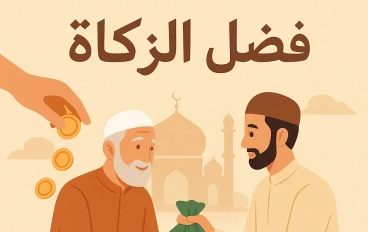
Major Developments in the Islamic Banking Sector
 king: Principles, Practices, and Global Growth
king: Principles, Practices, and Global Growth
Islamic banking has emerged as one of the fastest-growing sectors in global finance, offering an ethical and Sharia-compliant alternative to conventional banking. Rooted in the principles of Islamic law, it avoids practices that are prohibited in Islam, such as charging interest, engaging in excessive speculation, or investing in industries considered harmful to society. Over the past few decades, Islamic banking has transformed from a niche industry into a multi-trillion-dollar global market that attracts both Muslim and non-Muslim clients seeking ethical and stable financial solutions.
Core Principles of Islamic Banking
The foundation of Islamic banking lies in its compliance with Sharia (Islamic law). Several principles differentiate it from conventional banking:
Prohibition of Riba (Interest):
Charging or paying interest is strictly forbidden in Islam, as money should not generate money without productive activity. Instead, banks earn profits through trade, investment, and service fees.
Risk-Sharing:
Islamic finance encourages equitable distribution of risks and rewards. Both the bank and its clients share the outcomes of investments, creating fairness and discouraging exploitation.
Asset-Backed Transactions:
All financial activities must be tied to tangible assets or services. This ensures that money is used productively, rather than for speculative or purely financial gains.
Ethical Investments:
Investments must align with Islamic values, which prohibit funding industries such as alcohol, gambling, pornography, and weapons. This makes Islamic banking closely connected to principles of socially responsible investing.
Avoidance of Gharar (Uncertainty):
Excessive ambiguity in contracts is not allowed. Transparency and clarity are required to protect all parties involved.
Key Islamic Banking Products
To meet financial needs while respecting Sharia, Islamic banks have developed innovative contracts and instruments:
Murabaha (Cost-Plus Financing): The bank buys an asset and sells it to the customer at a markup, allowing repayment in installments. It is widely used for housing, vehicles, and trade finance.
Mudaraba (Profit-Sharing): A partnership in which one party provides capital and the other provides expertise. Profits are shared based on pre-agreed ratios, while losses are borne by the capital provider.
Musharaka (Joint Venture): Both the bank and client contribute capital and share profits and losses proportionally. It is common in business and real estate ventures.
Ijara (Leasing): The bank purchases an asset and leases it to the client, transferring ownership at the end of the contract.
Sukuk (Islamic Bonds): Instead of paying interest, sukuk holders earn returns from profits generated by underlying assets. Sukuk have become popular in international capital markets.
Global Growth and Expansion
Islamic banking has grown significantly since the 1970s, fueled by the rising demand for Sharia-compliant financial services. Today, the industry is estimated to be worth over $3 trillion, with an annual growth rate higher than that of conventional banking in many regions.
Middle East and North Africa (MENA): Countries such as Saudi Arabia, the United Arab Emirates, and Qatar are major hubs of Islamic banking, supported by government policies and wealthy clients.
Southeast Asia: Malaysia has developed one of the most advanced Islamic financial systems, offering a wide range of Sharia-compliant products and becoming a global leader in sukuk issuance.
Africa: Countries like Sudan and Nigeria are embracing Islamic finance to enhance financial inclusion.
Western Countries: The United Kingdom, Luxembourg, and even the United States have introduced Islamic banking services to cater to Muslim communities and ethical investors.
Benefits and Challenges
Benefits:
Ethical Finance: By avoiding harmful industries and speculative activities, Islamic banking promotes responsible investment.
Stability: Asset-backed financing reduces risks associated with bubbles and excessive leverage.
Financial Inclusion: Islamic banking provides access to financial services for individuals who avoid conventional banks for religious reasons.
Challenges:
Standardization Issues: Different interpretations of Sharia across countries create inconsistencies in products and regulations.
Awareness and Education: Many potential customers remain unaware of Islamic banking products.
Competition: Conventional banks dominate global finance, making it challenging for Islamic institutions to expand.
The Future of Islamic Banking
Looking ahead, Islamic banking is expected to continue expanding, especially in regions with large Muslim populations and growing interest in ethical finance. The integration of fintech and digital banking with Sharia-compliant models will play a crucial role in reaching younger generations. Moreover, the focus on sustainability aligns Islamic banking with global trends toward green finance and responsible investment.
Conclusion
Islamic banking represents more than just an alternative to conventional finance; it embodies a system rooted in fairness, risk-sharing, and ethical responsibility. By adhering to Sharia principles, it avoids interest and harmful industries while promoting asset-backed, transparent, and socially beneficial financial practices. With its rapid global growth and alignment with modern demands for ethical finance, Islamic banking is well positioned to play a significant role in shaping the future of global financial markets.




































